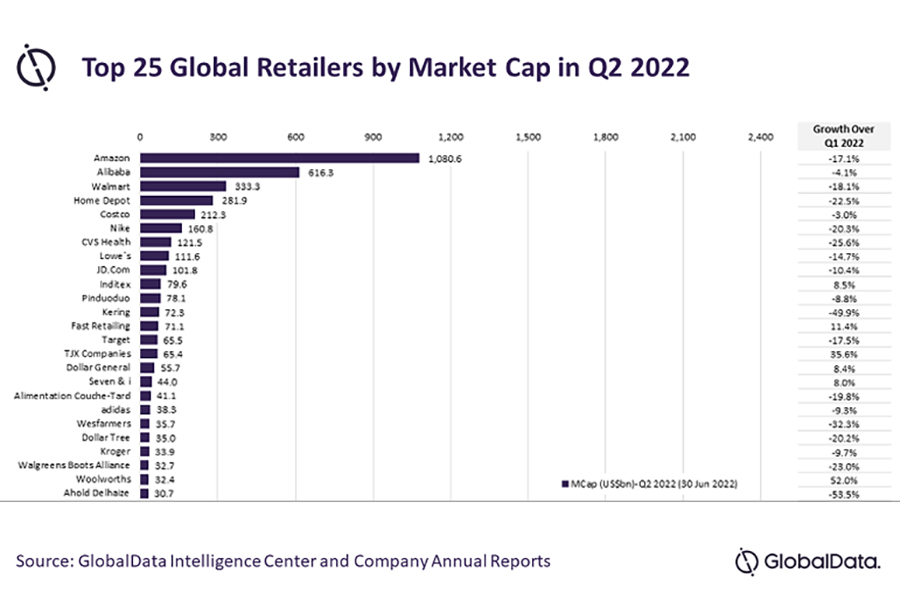
The top 25 global retailers by market capitalisation (MCap) reported a 14% decline in their cumulative MCap in Q2 2022, observed GlobalData. The data and analytics company also notes that the top six US companies – Amazon, Walmart, Home Depot, NIKE, Costco and Target – each lost over $25 billion in valuation.
“As result of the stringent lockdowns resulting from the COVID-19 pandemic, retail firms were able to enhance their e-commerce options. Additionally, home improvement and pharmaceutical retailers also benefitted from the pandemic. However, normalcy is returning to markets as more consumers are visiting physical stores,” said Ragupathy Jayaraman, Business Fundamentals Analyst at GlobalData
Additionally, surging inflationary pressures and a hike in interest rates by the Federal Reserve resulted in a broad selloff in stocks in Q2. Retailers are vulnerable to the volatile economic environment as the increasing prices directly impact consumers’ shopping habits. The ongoing Russia-Ukraine conflict has also had an immense impact on their positions, due to the increasing energy prices.
“Amazon was the only organization among the top 25 retailers that lost over $100 billion in its Q2 valuation. Although the company gained substantially from the pandemic, which improved its stocks’ performance enormously in 2020 and 2021, inflationary pressures and the market dip in 2022 brought the company’s stocks back to its pre-pandemic levels. The company also posted its first quarterly loss in seven years. Walmart, Lowe’s, Nike, and Costco each reported more than a 20% decline in their valuation during the same comparison period,” he added.
In contrast, Chinese retail giants Alibaba, Pinduoduo and JD.com reported market cap growth in the present cycle, with Alibaba and Pinduoduo recording more than 35% growth in valuation. Alibaba was the biggest gainer among the retail giants as its valuation improved from $296 billion in Q1 2022 to $616 billion in Q2 2022. However, the Chinese government’s regulatory crackdown on organizations continues to raise concerns for investors.